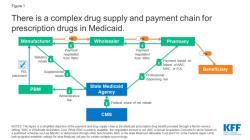Why is my abdomen sensitive to the touch?
Abdominal sensitivity to the touch, also known as abdominal tenderness, can have various causes, ranging from minor issues to more serious concerns. It's essential to consult with a healthcare professional to determine the underlying cause, especially if the tenderness is persistent, severe, or associated with other concerning symptoms. Here are some common causes and concerns related to abdominal sensitivity:
Muscle Strain: Overuse or strain of the abdominal muscles, often due to strenuous exercise or lifting heavy objects, can lead to localized tenderness. Rest and mild pain relief medications can help.
Bruising or Injury: Trauma to the abdomen, such as a direct blow or fall, can result in tenderness and bruising. In such cases, medical evaluation is recommended, especially if there's severe pain or signs of internal injury.
Digestive Issues: Conditions like gastritis, acid reflux, or inflammatory bowel diseases (such as Crohn's disease or ulcerative colitis) can cause abdominal discomfort and tenderness. Proper diagnosis and treatment are necessary to manage these conditions effectively.
Gas and Bloating: Excessive gas or bloating can lead to abdominal discomfort and sensitivity. Dietary changes and over-the-counter remedies may provide relief.
Constipation: Persistent constipation can cause abdominal pain and tenderness. Adequate hydration, dietary adjustments, and laxatives (under medical guidance) may help alleviate the discomfort.
Menstrual Cramps: Some individuals experience abdominal tenderness and discomfort during their menstrual cycle. Over-the-counter pain relievers and heat therapy can provide relief.
Infections: Infections of the gastrointestinal tract, such as gastroenteritis or urinary tract infections (UTIs), can cause abdominal tenderness, along with other symptoms like diarrhea, fever, or urinary symptoms. Antibiotics or antiviral medications may be needed.
Appendicitis: Appendicitis is a medical emergency characterized by severe abdominal pain and tenderness, often in the lower right side. If you suspect appendicitis, seek immediate medical attention.
Hernias: Hernias, such as inguinal or umbilical hernias, can cause localized abdominal tenderness and discomfort. Surgical repair may be necessary.
Organ Issues: Problems with organs in the abdomen, such as the liver, gallbladder, pancreas, or kidneys, can lead to tenderness. Conditions like gallstones or kidney stones can be particularly painful and require medical intervention.
Referred Pain: Sometimes, pain from another part of the body can be felt in the abdomen. For example, pain from a heart condition may radiate to the upper abdomen. Identifying and treating the underlying issue is crucial.
Serious Conditions: In rare cases, abdominal tenderness may be a symptom of serious conditions like peritonitis (inflammation of the abdominal lining) or abdominal aortic aneurysm. These require immediate medical attention.
Since abdominal sensitivity can result from a wide range of causes, it's essential to consult a healthcare provider for a thorough evaluation, diagnosis, and appropriate treatment. Your healthcare provider will consider your medical history, perform a physical examination, and may order additional tests such as imaging or blood work to pinpoint the cause of your symptoms.
Abdominal sensitivity is a condition in which the abdomen is tender or painful to touch. It can be caused by a variety of factors, including:
- Gas and bloating: Gas and bloating can cause the abdomen to feel tight and painful. This is especially common after eating a large meal or foods that are high in gas-producing substances, such as beans, cabbage, and broccoli.
- Constipation: Constipation can cause the abdomen to feel full and hard. This is because the stool is not moving through the intestines properly.
- Indigestion: Indigestion can cause a variety of symptoms, including heartburn, nausea, and abdominal pain.
- Food poisoning: Food poisoning can cause a variety of symptoms, including vomiting, diarrhea, and abdominal pain.
- Gastroesophageal reflux disease (GERD): GERD is a condition in which stomach acid backs up into the esophagus. This can cause heartburn, chest pain, and abdominal pain.
- Infections: Infections of the stomach, intestines, or other abdominal organs can cause abdominal pain.
- Inflammatory bowel disease (IBD): IBD is a chronic condition that causes inflammation of the digestive tract. This can cause a variety of symptoms, including abdominal pain, diarrhea, and rectal bleeding.
- Pancreatitis: Pancreatitis is inflammation of the pancreas. This can cause severe abdominal pain.
- Endometriosis: Endometriosis is a condition in which tissue from the lining of the uterus grows outside of the uterus. This can cause pelvic pain and abdominal pain.
- Menstrual cramps: Menstrual cramps are painful contractions of the uterus that occur during menstruation.
- Ovarian cysts: Ovarian cysts are fluid-filled sacs that develop on the ovaries. These cysts can sometimes cause abdominal pain.
- Kidney stones: Kidney stones are hard deposits that form in the kidneys. These stones can sometimes cause severe abdominal pain.
If you are experiencing abdominal sensitivity, it is important to see a doctor to rule out any underlying medical conditions.
In addition to the medical causes listed above, there are a few other things that can contribute to abdominal sensitivity, such as:
- Stress: Stress can cause a variety of physical symptoms, including abdominal pain.
- Anxiety: Anxiety can also cause a variety of physical symptoms, including abdominal pain.
- Depression: Depression can also cause a variety of physical symptoms, including abdominal pain.
- Lack of sleep: Lack of sleep can also contribute to abdominal pain.
- Certain medications: Some medications can cause abdominal pain as a side effect.
If you are experiencing abdominal sensitivity and you have not been diagnosed with any underlying medical conditions, it is important to make lifestyle changes to reduce stress, anxiety, and depression. It is also important to get enough sleep and to avoid medications that are known to cause abdominal pain as a side effect.
If you have any concerns about abdominal sensitivity, please see a doctor.













